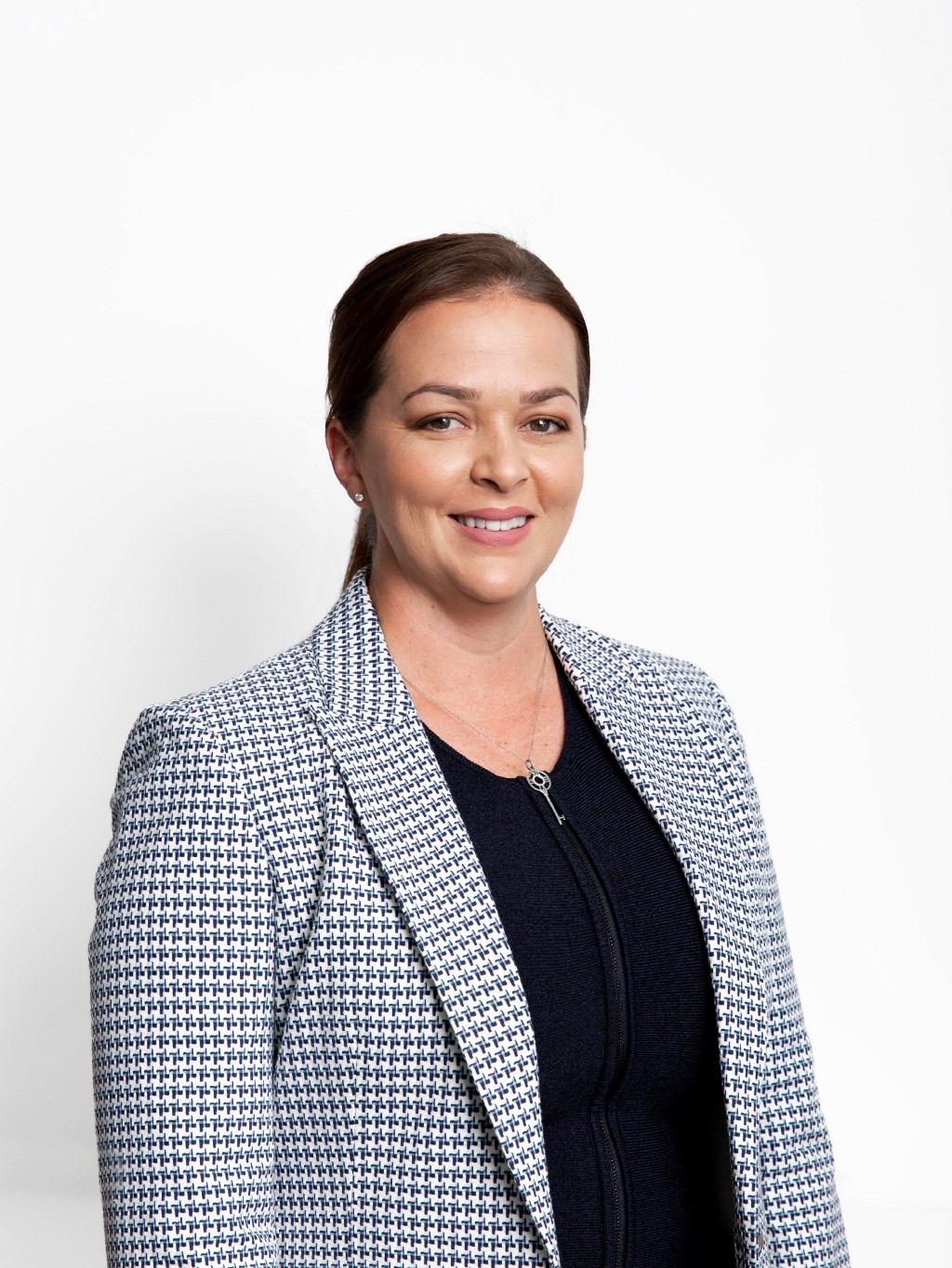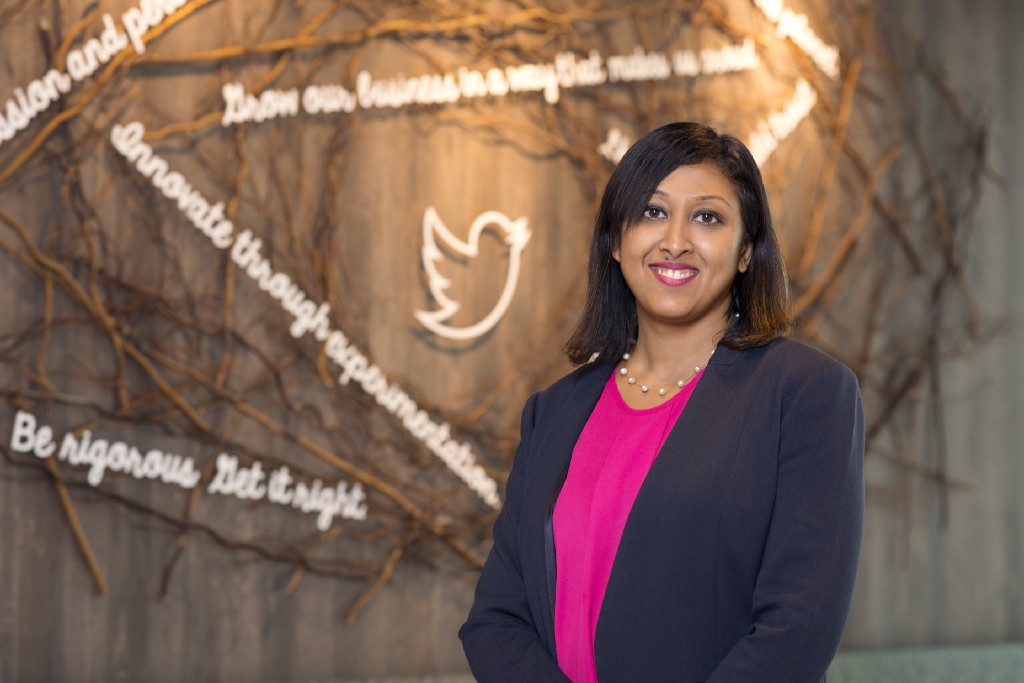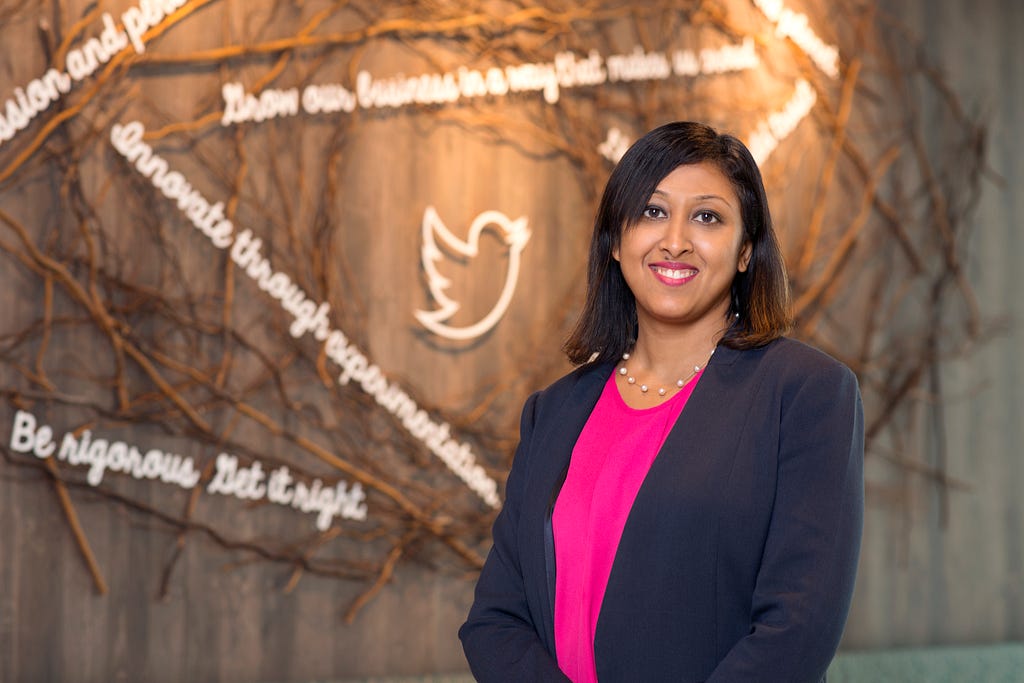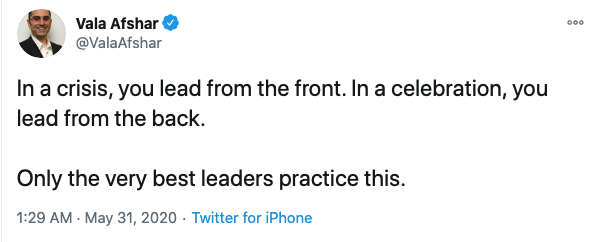
Be relatable — if your team feel they can relate to you and you are vulnerable with them (when appropriate) they are far more likely to be loyal and dedicated because they can see themselves in your shoes.
As a part of our series about strong women leaders, I had the pleasure of interviewing Stacey Jones of of Sentinel Property Group.
Stacey Jon has never suffered fools; a modus operandi serving to work in her favour. As newly appointed CEO (promoted from COO) of Sentinel Property Group — one of Australia’s leading commercial property investment firms — originally started by her father, Stacey’s authoritative manner addresses any whispers of nepotism, suitability or possibility of ‘wavering’ in the presence of the traditional property investment ‘boys’ club’. She’s 37, commanding and capable.
Thank you so much for doing this with us! Before we dig in, our readers would like to get to know you a bit more. Can you tell us a bit about your “backstory”? What led you to this particular career path?
I originally planned on being a vet but was completely disengaged from the science component, so following a contemplative break from university, I ended up in law, after acknowledging my talents in ‘legal studies’ in high school. During my first semester of study I was offered a position in a private practice in Brisbane (Connor O’Meara) as a Law Clerk, which I accepted and continued with past the completion of my degree, ultimately being there for almost 8 years.
My father had been asking me to join his commercial property investment company (Sentinel Property Group) for a while but I was concerned there wasn’t enough legal work to keep me busy. However, this soon changed, and I subsequently made the decision to take up a role in the family business and commenced as Sentinel’s first and only in-house lawyer (role of General Counsel). Following Sentinel Property Group’s fifth acquisition, I was involved in every legal matter for the group and for the vast majority, I did all the work myself. As the portfolio grew, it became an almost overwhelming workload (particularly after having had my first child), which often saw me still working into the wee hours of the morning. This led to my decision to hire my first teammate — a freshly graduated lawyer, who commenced on 31 March 2014, and is still with me today.
I showed a flare (but not necessarily an interest) for the management side of the business — specifically; a natural way on the HR side of things and a commercial approach that seemed to be second nature. I took more and more on and when the then current COO left in December 2016, it was a logical transition for me to take on the (COO) role. By that stage the in-house legal team had grown to a size and capability that I was confident it could continue to service the group without my dedicated focus.
Following completion of a practice management course with the Queensland Law Society, I established my own Incorporated Legal Practice — Sentinel Law. The existing legal staff from the Sentinel Property Group joined Sentinel Law. The team now has nine staff, including me as Legal Practitioner Director, and services all the property law needs of the group. Then, having been COO for almost 4 years, as part of the succession planning for the business, I have taken on the role of CEO.
Can you share the most interesting story that happened to you since you began leading your company?
‘Interesting’ is subjective, but I certainly have enjoyed the industry’s whispers regarding my ‘femaleness’. Separately, my father and I have very different management styles, of which I was always aware. I expected there to be a slight adjustment period (when I took over), however the response to my style has been immediate and positive. My focus is to ensure the team wants to follow me into ‘battle’ willingly.
Can you share a story about the funniest mistake you made when you were first starting? Can you tell us what lesson you learned from that?
This mistake wasn’t made in relation to my current employer — it actually happened just before I started working here but I learned from it and I tell the story quite often. At the time, I was working crazy hours with tremendous responsibility, I was Rodeo Queen of the National Rodeo Association, an Executive Director and Barrel Racing Director with the NRA and was the President of the National Barrel Horse Association of Australia (NBHA) — spreading myself very thin! I had made a bunch of necessary changes to the NBHA and was copping a bit of flack for some of them. I received this long email from a lady who signed her email off with “well done!” I was exhausted and used to criticism from all angles, so I read her “well done!” with a sarcastic tone and responded accordingly. Fortunately for me, the lady was very understanding and emailed back explaining that I must have misunderstood her as she genuinely appreciated what I was doing and meant the words “well done” to be complimentary. I felt 2 inches tall. That taught me that my feelings, and therefore the feelings of others, can heavily influence the way in which something is received. Just because someone has a specific intention when communicating something, it does not mean the recipient will receive that communication in the intended way. I have told that story countless times to make people consider the role their own emotions and perceptions are playing and often think of it to remind myself of the same.
None of us are able to achieve success without some help along the way. Is there a particular person who you are grateful towards who helped get you to where you are? Can you share a story about that?
My father; he started Sentinel Property Group, which ultimately saw me spread my wings into more corporate areas instead of just law. What I learned led me to start my own businesses, which are part of the Group — Sentinel Law and Sentinel Portfolio Management (a company that provides leasing, property management, accounting and other services to properties and trusts in the group to name a few).
While I certainly believe I was capable of achieving these things without his help, it made life easier, particularly as a woman, to not have to fight as hard to have doors open to me. Let me be very clear though; Dad would never have anyone in the roles I have occupied who was not 100% competent, daughter or not.
I have also learned a tremendous deal from him. When I was born, he was a taxi driver and prior to that, hadn’t even finished grade 10. His own story is a very inspiring one and it has taught me many things. A few off the top of my head:
1. In many instances, hard work (coupled with common sense) is more important than a good education. Someone who puts in the hours and does the work will typically have more doors open to them and have more ‘luck’ than someone who has a certificate on the wall but doesn’t back it up. You can achieve more from hard work and learn more from real life experiences than you can from sitting in a lecture theatre. I am yet to see a single person we have employed over the years who can process and retain detail at the level Dad can, and as I said, he didn’t even finish year 10. To be clear, I am not saying that a good education isn’t important. I have had one and I am grateful for it. However, a good education alone is not enough and is not necessarily a good predictor for future success.
2. The only wrong decision is not making a decision (yes, I realise not making a decision is in itself a decision). Consider the facts and make a call. If you get down the path and realise you have made the wrong decision, change it but don’t just sit back and do nothing.
3. Don’t get too caught up in making plans. Know generally what you want to achieve but don’t labour on mapping out every step you need to achieve in order to get there. If something doesn’t work out, your whole plan gets thrown out. Work as hard as you can to take advantage of all opportunities available to you each day and you will end up in the best possible place you can be. In doing that, it is extremely likely that you will in fact far exceed your original goal.
4. Don’t let insignificant details get in the way of a deal — if it’s unlikely to happen and the consequences won’t be fatal to the deal, and you can’t agree on changing it — move on.
In my work, I often talk about how to release and relieve stress. As a busy leader, what do you do to prepare your mind and body before a stressful or high stakes meeting, talk, or decision? Can you share a story or some examples?
To be honest, not much and mostly nothing. Ours is a fast-paced business where important decisions need to be made constantly. I have learned over the years to process and assess available information quickly and make a decision where needed. I also have a young family — so am well versed in the value of time management and the pitfalls of analysis paralysis.
As you know, the United States is currently facing a very important self-reckoning about race, diversity, equality and inclusion. This may be obvious to you, but it will be helpful to spell this out. Can you articulate to our readers a few reasons why it is so important for a business or organization to have a diverse executive team?
Diversity brings different perspectives — and having a diverse team helps ensure that a wider range of issues are considered and addressed. From the management perspective — similar to how some kids respond better to different teaching methods, I find some employees respond better to different management styles. While I appreciate that people of different race (for example) can have the same or similar management style, typically they don’t. Just as men and women often have different approaches.
As a business leader, can you please share a few steps we must take to truly create an inclusive, representative, and equitable society? Kindly share a story or example for each.
To be entirely honest (and indeed unpopular, and politically incorrect) I think far too much importance is placed on being inclusive and ensuring fair representation, etc. I think the best way to create an equitable society is for decisions to be merit-based.
I’m very cut-and-dry about this, but; don’t try and fill quotas. Don’t concern yourself with how something may look. If it is the right decision, the best deal, the most suitable person, then that is the equitable thing to do. I think this is particularly the case when it comes to staff. The ONLY way to be equitable is to base decisions on merit. The best person for the job is the best person for the job irrespective of sex or race. Simple. Any other decision creates inequality and continues to foster a view in society that you don’t have to work hard to achieve, and that’s garbage.
Ok, thank you for that. Let’s now jump to the primary focus of our interview. Most of our readers — in fact, most people — think they have a pretty good idea of what a CEO or executive does. But in just a few words can you explain what an executive does that is different from the responsibilities of the other leaders?
They (executives) are ultimately responsible for ALL decisions. The buck must stop with them. Other people ‘below’ them may have made the particular decision in question, but as there is a hierarchy and a chain of responsibility, the executives sit at the top and are (or should be) responsible, always.
What are the “myths” that you would like to dispel about being a CEO or executive. Can you explain what you mean?
The one that springs to mind, at least in my case, is that executives are “too busy” or “unapproachable”. While I am always busy, I am never too busy to make time. It may not be now, but I will make the time. As for being unapproachable — we are really no more or less important than anyone else. At the end of the day, it is a job. We all have jobs to do and ALL of those jobs contribute to the success. Further, a business cannot succeed without its people, therefore the growth of those people is a very high priority.
In your opinion, what are the biggest challenges faced by women executives that aren’t typically faced by their male counterparts?
Some industries are almost equal when it comes to men and women, so my comments are based solely off my two worlds — legal (commercial property in particular) and property.
- The statistics are clear; there are far fewer women executives in these industries and they are typically paid less than their male equivalents. It has always been my opinion that women have to work harder for the same reward. Whether this comes down to something as simple as sexism, or, a natural and unavoidable extension of that being that women have the babies and therefore have time out from their careers (or a combination of both) I am not sure, but I do not accept that it has anything to do with ability to do the job.
- Assumptions; I have walked into meetings and had the men from the other side speak to my junior male lawyers as though they were the boss. An automatic assumption on their part that was quickly dispelled when I started speaking, but an assumption, nonetheless. This side of things gets better and better as time goes by; however, it exists.
- Owning their style i.e. not changing to appease — whether they’re considered ‘ballbusters’ or ‘soft-touches’ — be yourself.
- AND lastly; the obvious one — EVERYTHING else that comes with being a mum and CEO of a household, as well as CEO of a company.
What is the most striking difference between your actual job and how you thought the job would be?
That I don’t get to do much ‘work’. This too was the case when I was COO, so it’s not a new adjustment. When I looked after only the legal work, I had very specific task lists I worked at methodically to ensure things got done. I got to the end of the day and had a real sense of achievement because I could point to very specific tasks I had completed. Now, my door is revolving for advice, approvals, signatures etc. My calendar is full of meeting after meeting. My directions are often more general in nature, therefore immediate effects can’t always be felt. It can take significant time to see if a decision that has been made or task done has the desired outcome.
Certainly, not everyone is cut out to be an executive. In your opinion, which specific traits increase the likelihood that a person will be a successful executive and what type of person should avoid aspiring to be an executive? Can you explain what you mean?
Traits consistent with success:
- Creative and critical thinking — as Marie Forleo says, “Everything is figure-outable” and that is entirely true, but sometimes it takes a very creative approach to achieve the desired outcome.
- The ability to consider the facts, make a decision and move on — quickly.
- The ability to put the good of the stakeholder before your personal feelings. Good business decisions are not always the ones that feel the best. Some are bloody hard to make and even harder to execute, but that’s the job
- Resilience. Resilience. Resilience.
- The ability to see mistakes as a learning opportunity and move on.
- Confidence — in themselves and in the business.
- Good communication — this one is probably the most important (even though the most boring). You can be all the other things but if you can’t communicate well, you can’t lead.
- Willingness to take perceived ‘risks’, the road less travelled/unpopular approach etc.
If you can’t relate to all of these — there’s a good chance an executive title will not sit well.
What advice would you give to other women leaders to help their team to thrive?
– Be genuine — the majority of people know when someone is faking it.
– Be relatable — if your team feel they can relate to you and you are vulnerable with them (when appropriate) they are far more likely to be loyal and dedicated because they can see themselves in your shoes.
– Be available — you can’t lead if you can’t inspire and if you aren’t ever available, how do you inspire?
How have you used your success to make the world a better place?
We have established a charitable fund and have made significant donations to our key charities, which at present are Zephyr Education Inc, The Salvation Army and the RSPCA. We also encourage staff to get involved and provide assistance via the properties where appropriate (collection points for donated goods, etc). We invite Zephyr to come to our investor functions and speak and collect donations in person.
What are your “5 Things I Wish Someone Told Me Before I Started” and why? (Please share a story or example for each.)
- You cannot be all things to all people. No real story or example because even though it has taken me a lifetime (my lifetime) to figure this out, it is apparently self-realizing.
- The right decision does not always make you feel good and that is okay. Example — letting staff go. If someone isn’t performing then clearly it is the right decision for the business but if they are otherwise a good person, the decision can make you feel pretty shit. However, the truth is that keeping someone around in a position where they aren’t thriving isn’t the best thing for them either.
- Don’t sweat the small stuff. Cliché I know, but I have spent a lot of time worrying about things that turned out to either not happen or not matter.
- What some perceive as your weaknesses (or in some cases tell you!) can actually be your strengths. I think this is particularly relevant for working mums. There is a perception, I believe, that having a family waiting for you means that you are less committed and/or less hard working. More often than not, that is very far from the truth. Working mums know their time is precious. They get in, get the work done in the most efficient way possible because they have to, and they have the skills to know how = strength! Not five, but I’m succinct!
You are a person of great influence. If you could inspire a movement that would bring the most amount of good for the greatest number of people, what would that be? You never know what your idea can trigger.
Violence against children (and animals) is something I feel very strongly about. So, something bold; I feel there needs to be mandatory education as to what raising a child actually involves — beyond just birthing it. An unusual tangent, but parenting is the most important job of all — and, just like nurses and personal trainers need to maintain their industry knowledge/professional currency — parents should also. Who knows who’d be responsible for the curriculum (obviously all longitudinal evidence-based), but we need prescribed mandatory parenting skills and the resources to access them. Cycles of neglect and abuse need to stop. The ripple effect of doing nothing and thus doing something — is irrefutable.
Can you please give us your favorite “Life Lesson Quote”? Can you share how that was relevant to you in your life?
“The cowards never started and the weak died along the way. That leaves us, ladies and gentlemen. Us.” (Phil Knight). A cracker. This is one I have really been feeling lately. It really speaks to the difficulty of having to make certain decisions.
We are very blessed that some very prominent names in Business, VC funding, Sports, and Entertainment read this column. Is there a person in the world, or in the US with whom you would love to have a private breakfast or lunch with, and why? He or she might just see this if we tag them.
Julie Bishop. I had the pleasure of attending a ‘Business Chicks’ breakfast where Julie was guest speaker. I had of course seen and heard of her before but hadn’t really paid too much attention (my error) prior to that. My goodness that woman is impressive. So charismatic, eloquent and intelligent. An absolute inspiration for what it means to be a woman in power. Australia suffered a great loss in not having her as our Prime Minister. She would have shown New Zealand a thing or two…
Thank you for these fantastic insights. We greatly appreciate the time you spent on this.
Stacey Jones of Sentinel Property Group: Why It’s So Important For A Leader To Be Relatable was originally published in Authority Magazine on Medium, where people are continuing the conversation by highlighting and responding to this story.









